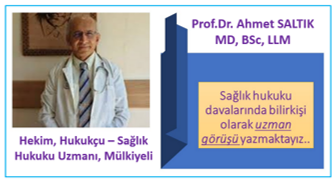Dear Phase 3 Students of Atılım Univ. Medical School
All medical students,
Medical residents in different branches
Allied health staff
General public and Media,
On 27th February 2024, we conducted a 2 hours lecture for Phase 3 Students of Atılım Univ. Medical School with a subject of “Ethics in Medical Research: Breaches & Legal Status“
Here is the 43 slides PDF file (2,6 MB) : Ethics in Medical Research; Breaches & Legal Status
Some important reminders for all :
Ethics Defined: Ethics refers to moral principles that govern a person’s behavior or the conduct of an activity. In the context of medical research, ethical considerations are crucial to ensure the well-being of participants and the integrity of scientific inquiry.
Distinguishing Ethics and Morality: It’s essential to differentiate between ethics and morality. While morality encompasses social order rules that regulate behavior in society, ethics encompasses the
fundamental principles underlying one’s actions. Ethical individuals adhere to guiding values, principles, and standards that dictate how things should be done.
Public Health Ethics:
Understanding public health ethics is vital. It involves considering the ethical implications of
decisions related to public health services, resource allocation, and community well-being.
Legal Rules on Medical Research: Medical research operates within legal frameworks. Students should learn the basic legal rules governing research, including informed consent, privacy, and data protection.
Awareness of Legal-Ethical Conflicts: Students must recognize situations where legal and ethical considerations may conflict. Developing strategies to address such conflicts is essential for responsible research conduct.
Origin of the Word “Ethics”: The term “ethics” originates from the ancient Greek word “ethos.” It refers to issues related to the “ethe,” which is the plural of ethos. Ethos, in its oldest sense, means “the space of a living being” or “the place where one takes shelter.” It also signifies character and temperament.
Ethics as a Branch of Philosophy: Ethics is one of the four basic areas of philosophy, alongside Ontology (philosophy of existence), Epistemology (philosophy of knowledge), and logic. It is a branch of knowledge that explores moral principles and human conduct.
Morality vs. Ethics: While morality is a social phenomenon that surrounds us, Ethics is a systematic study of universal values. Ethics encompasses principles like equality, human rights, obedience to laws, and concern for health and safety.
As Learning Objectives : By the end of the lecture, students should:
1.Distinguish between Ethics and Morality.
2.Understand the importance of Ethics.
3.Grasp Public Health Ethics.
4.Acquire key principles for delivering public health services.
5.Familiarize themselves with legal rules in medical research.
Critical Thinking: Encourage critical thinking about ethical dilemmas in medical research. Students should learn to navigate complex situations, balancing legal requirements, ethical principles, and the well-being of research participants. Remember that ethical considerations are fundamental to maintaining trust, integrity, and responsible research practices in the medical field.
With respect and love.17th March 2024, Ankara
Prof. Dr. Ahmet SALTIK MD, BSc, LLM
Atılım Univ. Medical School, Dept. of Public Health
BSc in Political Sciences & Public Administration
LLM in Health Law
www.ahmetsaltik.net profsaltik@gmail.com
facebook.com/profsaltik X : @profsaltik




